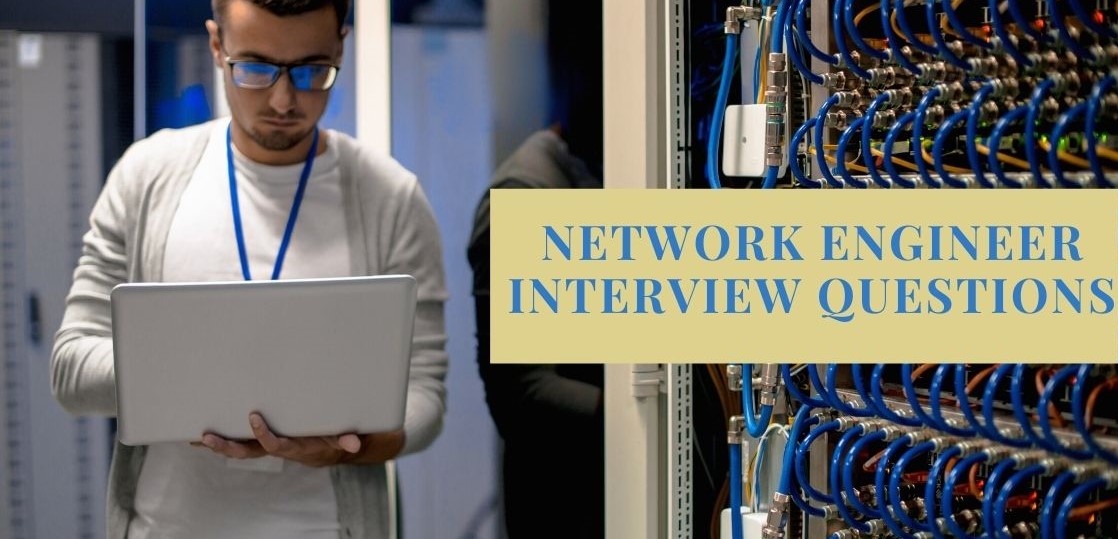
Are you planning to start your career in the networking profile or looking to switch your job into another organization as a network engineer? If yes, then we are glad that you are here because we have prepared this article that contains all the network engineer interview questions. As everyone knows, the demand for network engineers has increased nowadays and the security of the data has become everyone’s priority. Thus, companies are investing more in network engineers, and congratulations you have opted for the right career choice.
We have compiled all the frequently asked network technician interview questions that are going to help you in preparing yourself for your upcoming interview. You do not need to go anywhere else for your preparation if you have successfully read and practiced these questions which are listed in this article.
Most Frequently Asked Network Engineer Interview Questions
Here in this article, we will be listing frequently asked Network Engineer Interview Questions and Answers with the belief that they will be helpful for you to gain higher marks. Also, to let you know that this article has been written under the guidance of industry professionals and covered all the current competencies.
There are 7 layers of the OSI reference model:
- Physical Layer
- Data Link Layer
- Network Layer
- Transport Layer
- Session Layer
- Presentation Layer
- Application Layer
It is a consolidated infrastructure that is being designed to circulate various routes and data to the different networks. It is also responsible for handling the multiple channels and bandwidth management.
Routers are used to connect multiple network segments. They are known as intelligent network devices which store the information in their routing tables; such as hops, paths, and bottlenecks. With the help of this information, they can easily figure out the best path for transferring the data. Routers operate at the third layer of the OSI model which is the Network Layer.
Network topology tells you to decide which media you should use for interconnecting the devices. It also helps in serving as the basis of materials, terminations, and the connectors which are applicable for the setup.
There are 4 layers under TCP/IP:
- Network Layer
- Internet Layer
- Transport Layer
- Application Layer
- Implementing a fault tolerance system is the feature that helps the system to continue working with its operations even though there is some failure on any part of the system.
- Fault Tolerance systems are created to provide opportunity even when there is the forecasting of service disruptions whether intended or unintended.
- It provides security in terms of protecting the system from hacking and malicious intrusions.
- It supports multitasking.
A network administrator has multiple responsibilities however, these can be compiled into the three main functions:
- Installation of a network
- Configuration of the network settings
- Maintenance and troubleshooting of the networks
Routers have inherent security that allows you to design various settings, similar to security and information logging. You can dole out limitations to PCs, for example, what assets it is permitted access to or what specific time, they can browse the Web. You can also add the limitations on what websites are not perceptible across the whole network.
A firewall means the network security system that helps in controlling and monitoring all the network traffic whether incoming or outgoing which is depending upon the predefined security rules. A firewall builds the boundaries between the trusted and untrusted networks.
The IP class of a given IP address can be identified by simply looking at the first octet of the given IP address.
Three IP classes can be identified by:
- Class A: If the first octet begins with a 0 bit
- Class B: if it begins with 10 bits
- Class C: if it begins with 110
There are uncountable ways of securing a computer network. Installing the reliable and most updated antivirus software on the computer. Ensure the setup of firewalls is configured correctly. For securing a computer network, user authentication helps a lot. If you follow all these things, it will make a highly secured network.
Node means to the point where any connection takes place. They can either be a device or computer which is a part of the network. For building the network connection, two or more forms are required.
Anonymous File Transfer Protocol (FTP) is a process of giving users access to the files that are in the public servers. The users do need to identify themselves who are allowed to access the data in these servers, instead, they can log in as the anonymous guest.
It is the procedure of dividing a large amount of information into smaller chunks before transmitting them across the networks. During this process, it is important to check that the addresses of source and destination are attached to their headers.
VPN stands for Virtual Private Network. This is an innovation that permits a protected tunnel to be made across the network like the Internet. For instance, they allow you to create a secure dial-up connection with a remote server.